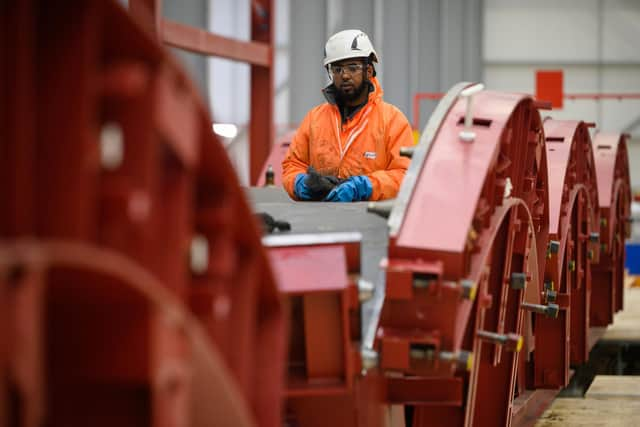Wheels start turning on strategy to accelerate engineering construction workforce
The employer-led board of the Engineering Construction Industry Training Board (ECITB) has lifted the curtain on the three-year plan, spanning 2023 to 2025 inclusive, aiming to help bring talented new entrants with foundation skills into industry plus support ongoing training and the reskilling of workers moving from other sectors.
The strategy was developed following extensive consultation with industry, training-providers and UK, Scottish and Welsh governments, and builds on measures enacted by the ECITB to secure skills during the pandemic. The focus now is helping to address industry recruitment and retention challenges, as employers look to expand the workforce to deliver a growing number of projects on the horizon, the organisation added.
Advertisement
Hide AdAdvertisement
Hide AdThese encompass sectors such as nuclear new build and decommissioning, renewables, oil and gas, water treatment and food and drink, and hydrogen and carbon capture projects linked to the decarbonisation of the industrial clusters.
The ECITB flags a “looming” workforce and skills crisis, forecasting that 25,000 additional workers are needed by 2026 for major projects, including those related to net zero, placing employers in direct competition for labour from £650 billion of infrastructure projects in the wider UK economy.
The organisation added that the UK Government’s Energy Security Strategy is placing greater pressure on industry and the engineering construction supply chain to expand to meet new energy-generating capacity targets.
The ECITB, which earlier this year saw the launch of its scholarship in Aberdeen aiming to prepare the next generation of engineers for the energy transition, is funded by a levy on engineering construction industry employers, and steered by a board comprising senior leaders from industry, including Daniel Gear, Shetland business manager for energy logistics firm Peterson.


It will allocate £73m towards training grants over the next strategy period, with 52 per cent to fund ongoing training, upskilling and reskilling, while the rest will support new entrants to start careers in industry via various pathways.
Central
Chris Claydon, chief executive of the ECITB, said: “The engineering construction industry and its supply chain companies design, deliver and decommission many of England, Scotland and Wales’s critical infrastructure projects, and therefore is central to the nation’s energy security and energy transition ambitions.
“The ECITB’s new strategy is designed to help address the main workforce challenges facing this critical industry over the next three years. We have prioritised support for new entrants and new pathways to industry in anticipation of the forecast labour shortages, and will fund training to bridge skills gaps through support for new training around net-zero projects, including digital skills.
“In developing the strategy, [we have] listened closely to employers, training providers, government representatives and other key stakeholders. We aim to deliver what industry has said it needs – a focus on attracting and developing new talent and the provision of high-quality training across Britain. For the ECITB, our mission to lead industry learning has never been more important than it is now.”
Comments
Want to join the conversation? Please or to comment on this article.
